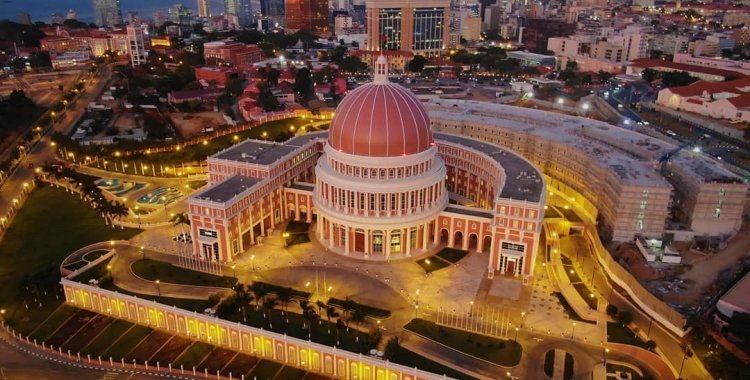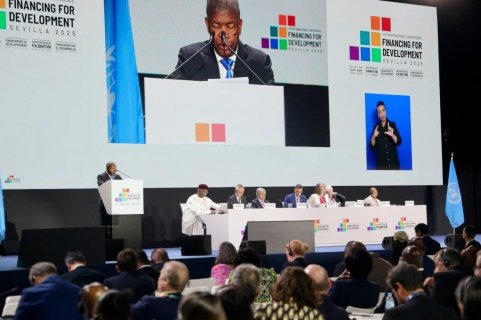The National Assembly discussed and approved the Draft Resolution on the Cooperation Agreements between the ministries of Interior of Angola and Hungary, in the field of Security and Internal Order, which passed with 123 votes in favor, none against and no abstentions.
Members also discussed and considered the draft resolution approving for ratification the Agreement between the governments of Angola and Equatorial Guinea, in the field of security and internal order, as well as the draft resolution approving for ratification, the Cooperation Agreement between Angola and Spain on Security and Combating Crime, both approved unanimously.
The draft resolution approving for ratification, the Agreement between the Republic of Angola and the Republic of Cuba, in the field of mutual legal and judicial assistance in criminal matters was approved with 123 votes in favor, ten against and 44 abstentions.
At the presentation of the legal instruments, the Secretary of State for International Cooperation and Angolan Communities, Domingos Vieira Lopes, said that in the framework of the good relations between the two countries, the Agreement on Mutual Assistance in Criminal Matters was signed in Havana on July 1, 2019, for the strengthening and deepening of cooperation between both states.
"The agreement aims to strengthen the existing legal framework of cooperation by establishing the exchange between the two countries on information, procedural acts or products resulting from crimes, the notification and acts, the delivery of goods and other legal instruments that appear necessary to ensure mutual legal assistance between the parties," he said.
Domingos Vieira Lopes stressed that criminality has registered an increasingly extended action across borders, making the intervention of the competent national court limited and insufficient, therefore "the need for the process to take on a transnational dimension, through mechanisms that allow the connection between the different legal systems".
"Taking into account the mobility of people between the two countries, the ratification and implementation of the agreement on mutual legal assistance in criminal matters will strengthen the fight against transnational organized crime, providing greater procedural speed in criminal proceedings of offenses committed by nationals of the States Parties in both countries," he said.
The governor also highlighted that this agreement aims to act in the prevention, investigation, prosecution or instruction of the process of criminal nature and strengthen cooperation between the two states in the field of justice.
In response to concerns raised during the discussion by deputies, the president of the Commission of Foreign Relations, International Cooperation and Angolan Communities Abroad, deputy Josefina Pitra Diakité, said that "there is no reason for fear or concern" regarding the doubts about articles 2 and 4 of the agreement.
"For the following: we are dealing with an agreement of mutual judicial cooperation between the parties, and if it is a matter that is not criminalized in Angolan law, but is in Cuban law, the Cuban state has the right to ask us for assistance and we have the right to provide that assistance, which is the location of the Cuban citizen in question, which may sometimes be simply for clarification, making statements," she explained.
According to Josefina Diakité, the wording of the agreement safeguards the cases where it is not a crime or the cases where they are crimes of a political or other nature, including racial reasons, discrimination of any other nature.
In his speech, the deputy for the Broad Convergence for the Salvation of Angola - Electoral Coalition (CASA-CE), André Mendes de Carvalho "Miau", stressed that Cuba is a friendly country, so it is necessary to look at the law objectively, pointing out that in point two of article 2, the way the question was put "was with some caution", and presupposes that "there is something that is not very clear".
"We should help to clarify something that we ourselves condemn, theft, murder, we are all in agreement, we will cooperate so that these aspects are clarified, but if a certain act in my country is not a crime, I have no business helping the other to make a punishment that I myself do not recognize," he argued, proposing that the document should be corrected.
In turn, the deputy from the Broad Convergence for the Salvation of Angola (CASA-CE) Alexandre Sebastião, and from the National Front for the Liberation of Angola (FNLA), emphasized that Angola and Cuba have different political systems, therefore this collaboration hurts the Constitution.
The leader of the National Union for the Total Independence of Angola (UNITA) parliamentary bench, Liberty Chiaka, said that they intended to "whitewash" article 4, in number two, speaking of "transferring people in custody to give testimony or produce evidence", when the correct word is extradition, contrary to the Angolan Constitution.
"From the political point of view we know what the interest is, essentially from Cuba, in relation to this agreement, because the flow of Cubans that are now beginning to stay in our country, coming from various agreements and who later decided to stay permanently, begins to worry the Cuban regime and in that sense it is of more interest to the Cuban regime to see these people in their country being sanctioned for having stayed in Angola," said Lindo Bernardo Tito, independent deputy, in his explanation of vote, with the sense of abstention, calling on the majority group an appeal of unconstitutionality.
Lucas Ngonda (National Liberation Front of Angola) reiterated that "the Cuban political system is still a one-party system" and even if Angola has cooperation agreements with Cuba, in constitutional terms, the differences are abysmal.
"We here cannot talk about political prisoners, we would be going against the fundamental freedoms of citizens, in Cuba no longer. The Cuban cannot travel anywhere as we do. Until today the Cuban legal system doesn't allow it," he recalled, affirming that this agreement "is hiding some kind of vice.







